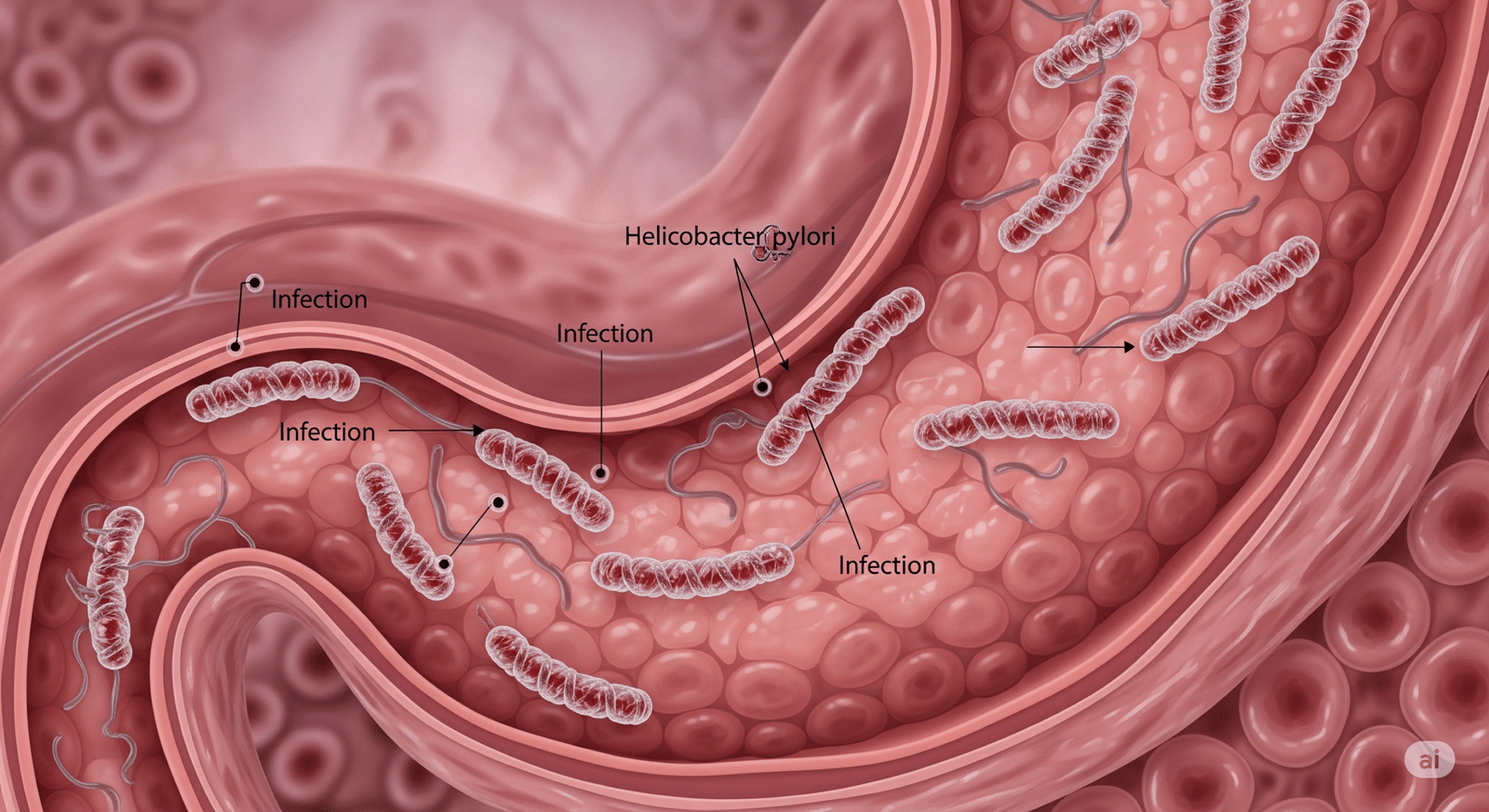 Introduction
Introduction
H. pylori (Helicobacter pylori) is a type of bacteria that infects the stomach and is a common cause of peptic ulcers. If left untreated, it can lead to more serious stomach problems, including gastric cancer.
What is H. Pylori?
H. pylori is a spiral-shaped bacterium that infects the stomach lining. It’s transmitted through contaminated food, water, or utensils, and is prevalent in areas with poor sanitation.
Common Causes of H. Pylori Infection
- Poor Hygiene: Consuming contaminated food or water can introduce the bacteria into the digestive system.
- Close Contact: The infection can spread through saliva, vomit, or fecal matter of an infected person.
Symptoms of H. Pylori Infection
- Abdominal pain, particularly when the stomach is empty
- Nausea or vomiting
- Loss of appetite
- Frequent burping or bloating
Treatment for H. Pylori
- Antibiotics: A combination of antibiotics is used to eliminate the infection.
- Proton Pump Inhibitors: These medications reduce stomach acid and help heal ulcers.
- Dietary Adjustments: Avoid spicy, acidic, or fatty foods that can irritate the stomach lining.
Conclusion
H. pylori infections can be effectively treated with the right combination of medications. Early detection and treatment are essential to avoid complications like ulcers and gastric cancer.
